WE Controversy undermines Liberal support and confidence in Morneau & Trudeau
July 30, 2020
The controversy about the WE Charity has eroded Liberal support, including among one in five who voted for a Liberal candidate only months ago.
An election today would see the Liberals (34%) with a 4-point margin over the Conservatives (30%) and the NDP further back with 17%. The regional patterns in the most populous provinces show the BQ and Liberals statistically tied (33% to 32%) in Quebec, a tie between the Liberals and Conservatives in Ontario (36% to 35%), and a 12-point Liberal lead in BC. In Atlantic Canada, the Liberals lead by 19-points. The Liberals could win re-election based on these numbers but their lead has been significantly diminished in a short period of time.
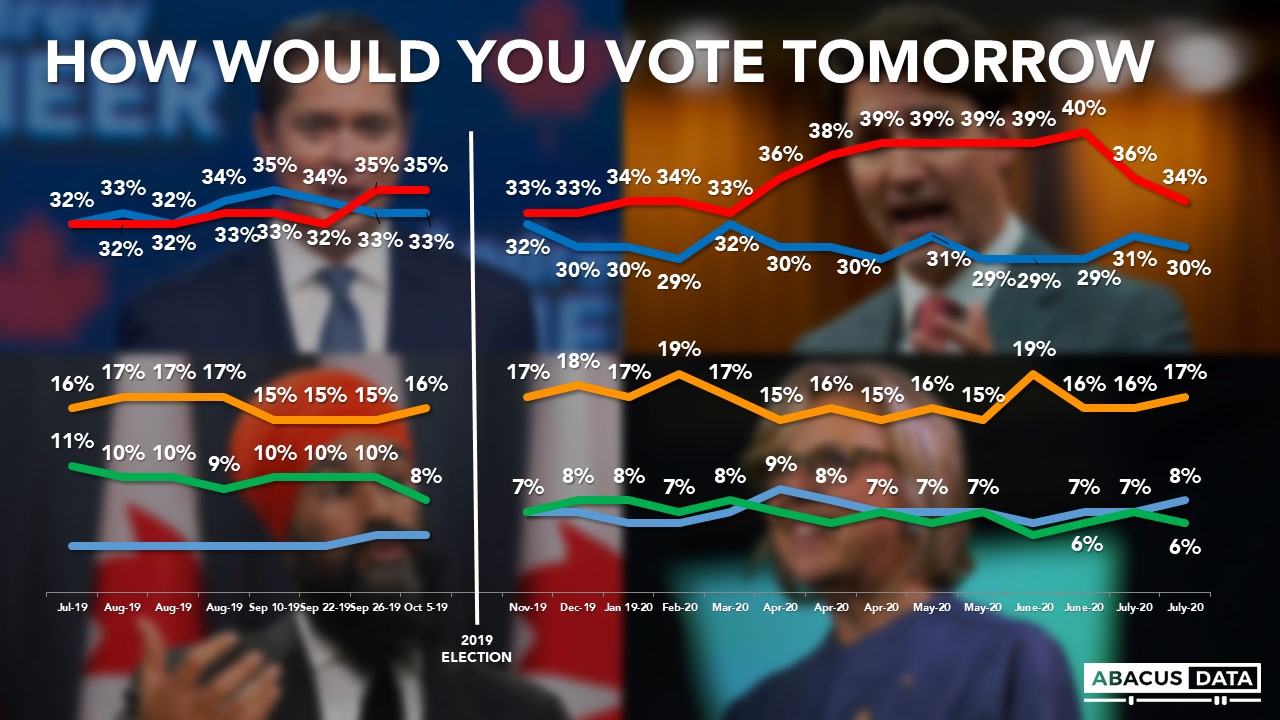
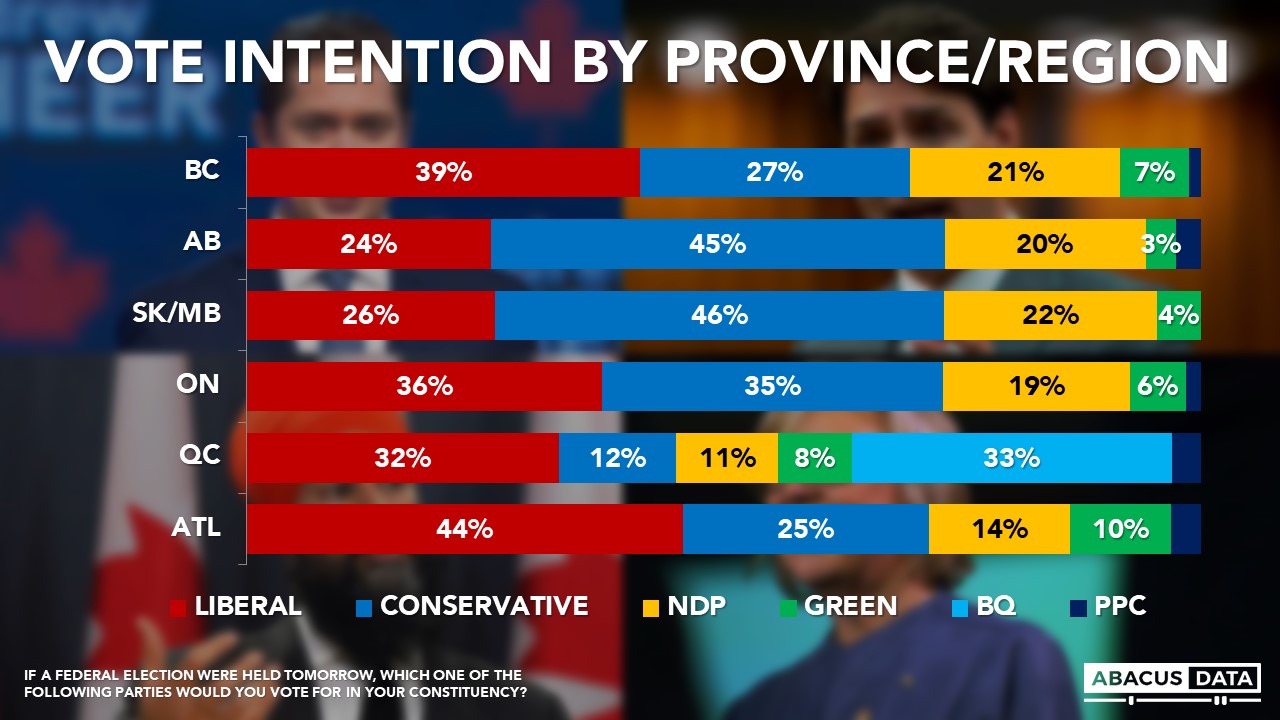
Other indicators confirm that the We Charity matter is creating scar tissue for the incumbents.
Approval of the government is down 4-points in 10 days, and 14-points since May. Negative opinion about Mr. Trudeau is up 5-points over the same period, and up 11-points since May. For the first time in months, more people have a negative view of the Prime Minister than a positive one.
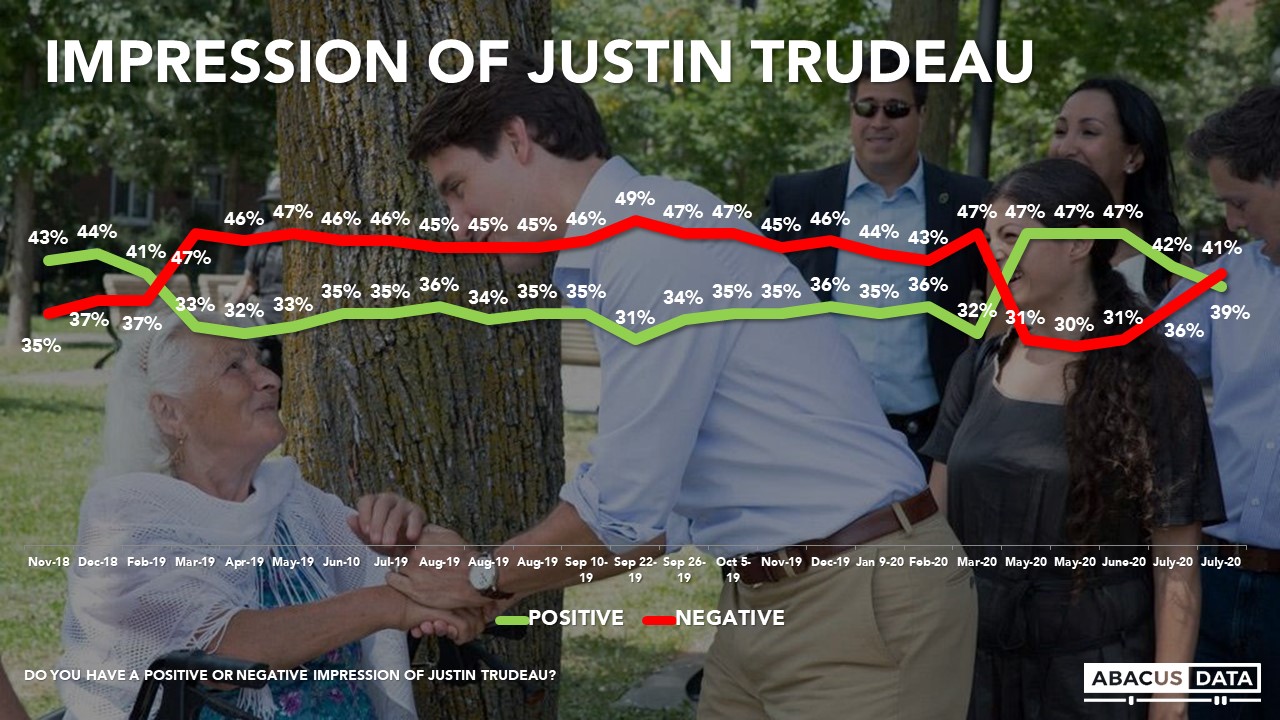

Across the country, 44% would like to see a new Liberal leader before the next election, while 30% would prefer to see Mr. Trudeau continue, and 26% aren’t sure at this point. Among those who voted Liberal last November, 65% would like to Mr. Trudeau lead the party in the next election, while 17% would prefer someone else, and 18% are unsure.

THE WE CHARITY CONTROVERSY
Just about half of those surveyed (48%) say they have been following the WE matter very or pretty closely, largely unchanged from our last survey earlier this month. Overall awareness of the issue has increased though with only 14% reporting being unaware of it at all (down 5 points since July 16).
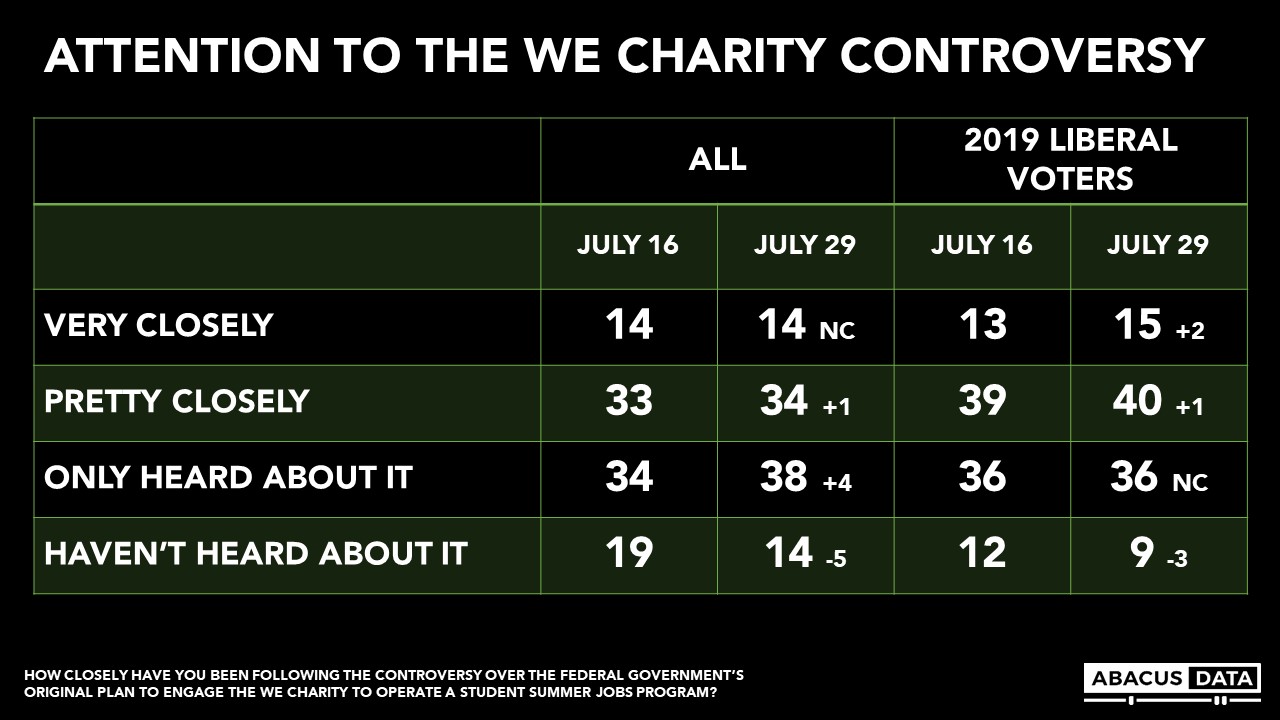
Of those aware of the WE issue, 14% believe the government has handled this situation well, 31% say it’s been handled “ok” and 55% say the government has done a poor job. More than one in three Liberal 2019 voters feel the government has handled this poorly.

A majority (57%) say it seems to them an “attempt to use public money to reward people who are friends and supporters) while 43% say it is more “about short time frames and a lack of proper diligence on the part of the government”. These numbers have shifted 4-points towards the patronage conclusion in the last ten days.
Among those who voted Liberal last fall, 34% think the WE matter is about helping reward friends and supporters with public money, up 3-points since July 16.

SHOULD MINISTER MORNEAU RESIGN?
Half (48%) don’t feel they know enough about Bill Morneau’s role in the matter to have an opinion. Among those who do have an opinion, more think he should resign (35%) rather than stay on (16%) as Finance Minister. Among those who voted Liberal in October, one in five (21%) feel Mr. Morneau should step down, 34% say he should not, and the rest aren’t sure.
Among those who have been following the WE matter closely, 54% say the Finance Minister should step down compared to 26% who say he should stay on, and 20% who don’t have an opinion at this point.
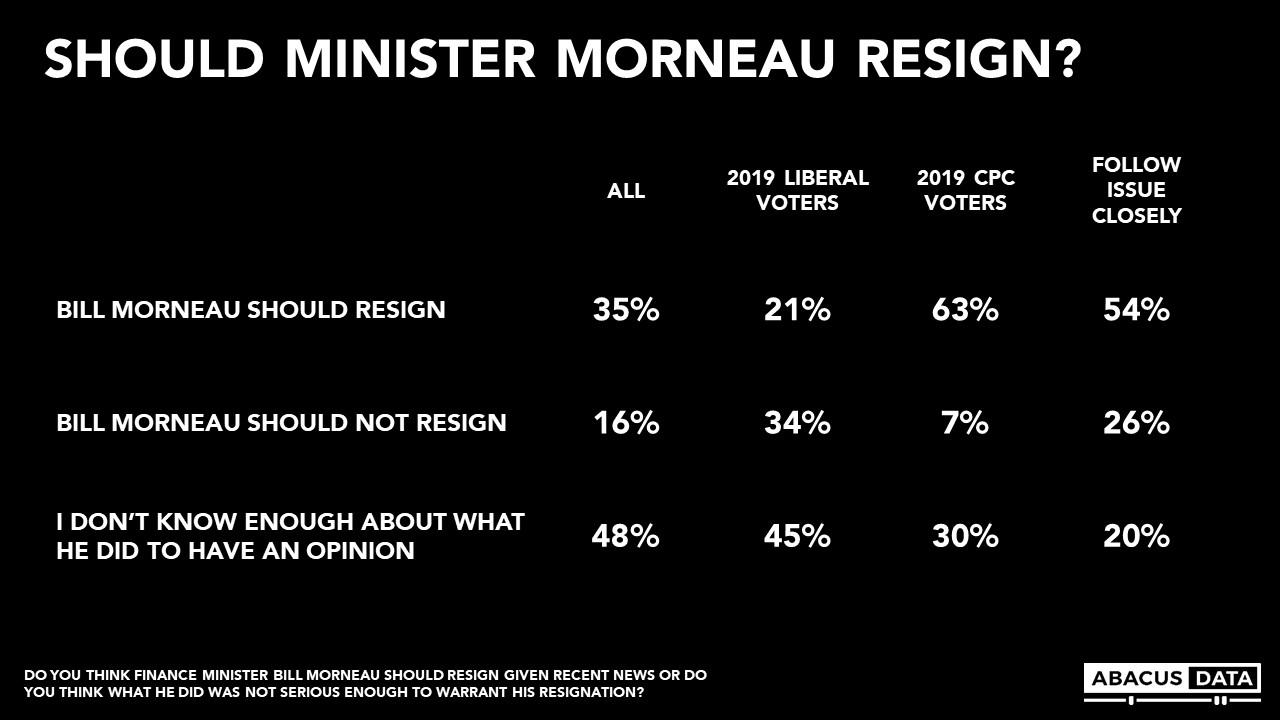
UPSHOT
According to Bruce Anderson: “COVID dominates public concerns, but this matter has nonetheless left an unmistakable mark on public impressions of the Liberals. Lots of opinion is yet to be formed, and time will tell whether the matter fades to the background or becomes even more politically charged, but for the Liberals, there are clear warning signals in these numbers.
A lot of those who supported the party just months ago, seem tepid or even cooler than that in their feelings towards Mr. Morneau. That two-thirds of Liberal 2019 voters want Mr. Trudeau to lead the party next election is not the overwhelming vote of confidence he might have seen had we asked the same question a couple of months ago.
This signals that some voters will be watching carefully to see how he handles himself and manages his government in the days to come, including in his testimony at the Finance Committee. The issue now may now be less about recusal or whether there was corrupt intent, and more about effective management of government and how he responds to the inevitable issues and errors that can arise.”
According to David Coletto: “The WE Charity controversy has turned an eleven point Liberal lead to a four-point in a matter of months. The Liberals are tied with the Conservatives in Ontario and the BQ in Quebec. Worse, underlying attitudes towards the government and the Prime Minister continue to deteriorate. More people now have a negative view of the Prime Minister than a positive one and the government’s approval rating is back to where it was prior to the pandemic.
Canadians remained engaged on the issue and views are shifting away from the government’s narrative. The longer this is a story, the more it damages the public’s impression of the Prime Minister and the government. These results should be a wake-up call to Liberals. It also raises the stakes for the Conservative leadership race because it’s clear, the Liberals are beatable again.”
ABOUT ABACUS DATA
We are the only research and strategy firm that helps organizations respond to the disruptive risks and opportunities in a world where demographics and technology are changing more quickly than ever.
Find out more about what we are doing to help clients respond to the COVID-19 pandemic.
We are an innovative, fast-growing public opinion and marketing research consultancy. We use the latest technology, sound science, and deep experience to generate top-flight research-based advice to our clients. We offer global research capacity with a strong focus on customer service, attention to detail and exceptional value.
We were one of the most accurate pollsters conducting research during the 2019 Canadian Election.

Contact us with any questions.
Find out more about how we can help your organization by downloading our corporate profile and service offering.
METHODOLOGY
The survey was conducted with 1,500 Canadian residents from July 27 to 29, 2020. A random sample of panelists were invited to complete the survey from a set of partner panels based on the Lucid exchange platform. These partners are typically double opt-in survey panels, blended to manage out potential skews in the data from a single source.
The margin of error for a comparable probability-based random sample of the same size is +/- 2.6%, 19 times out of 20.
The data were weighted according to census data to ensure that the sample matched Canada’s population according to age, gender, educational attainment, and region. Totals may not add up to 100 due to rounding.





